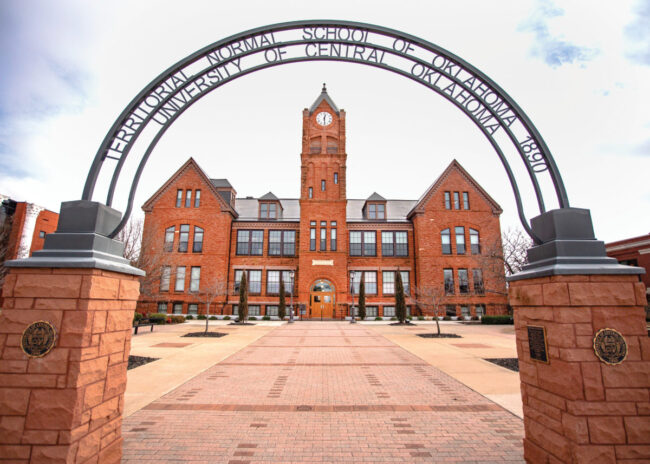Non-traditional students experience degrees of difference in pursuing college
Kyle Batt

The path of higher education is rarely straightforward. Sometimes it requires a circle back around after completing the initial pass through.
University of Central Oklahoma Professor Mark Hanebutt graduated from high school, enrolled in college and earned a bachelor’s degree in journalism. After starting and building a career in Florida, Hanebutt and his family moved to Oklahoma, where he decided to pursue a master’s degree. This opened the door for Hanebutt to move into the world of teaching at the college level.
However, most college professors must possess a terminal degree, or the highest possible degree in their field. Most college professors go the route of the doctorate, but Hanebutt decided that he would pursue a different end.
“When I was an undergraduate, I had thought of going and getting a J.D.,” Hanebutt said. A juris doctorate, or JD., is the professional degree required to practice law. “I got special dispensation from the dean, and from the provost, and from the president and from the board of regents, because at that time they would not accept a non-academic degree,” Hanebutt said.
Despite getting the approval to pursue the degree he wanted, Hanebutt’s journey to that degree would certainly fall under the description of “non-traditional.”
“I was teaching full time [at UCO], running the student newspaper and going to law school at night.” Hanebutt said.
It was a “double life” situation in which Hanebutt was a professor during the day, but a full-time law student at night. Although it was rigorous, Hanebutt completed law school in four years. However, there was still one final test to truly become a lawyer.
“I took the summer off,” Hanebutt said, “I Began studying in August for the bar exam the next February.” Studying nearly every day during that time span, Hanebutt successfully passed the bar exam and was sworn in as an attorney.
Although he has and still does practice law occasionally, Hanebutt has stepped into more of a consultant role in the field of law. His main duties are as the Law Professor in the Mass Communications Department at UCO.
Sometimes an initial pass through higher education, experience in a career and life experience can pave the way back onto a college campus to take the journey in a new, unforeseen direction.
“If I had gone to law school right out of undergraduate school, I would not have succeeded,” he said. “I didn’t have the requisite discipline, I was too young, I wasn’t mature enough to handle that kind of effort. It was probably better that I waited until I got some more life experience behind me.”

